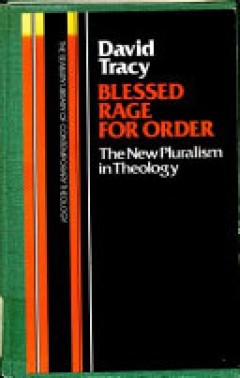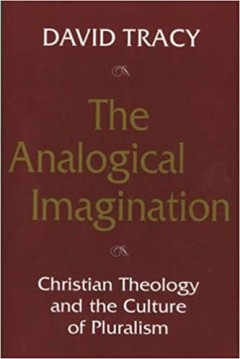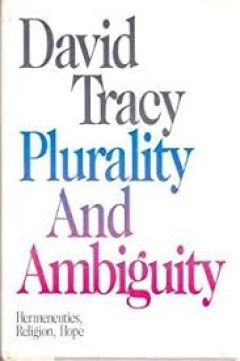Ditapis dengan

Blessed Rage for Order : The New Pluralism in Theology
- Edisi
- First Published
- ISBN/ISSN
- 0-8164-0277-9
- Deskripsi Fisik
- xiv + 271 pgs.; 23 cm.
- Judul Seri
- -
- No. Panggil
- 230 TRA b
- Edisi
- First Published
- ISBN/ISSN
- 0-8164-0277-9
- Deskripsi Fisik
- xiv + 271 pgs.; 23 cm.
- Judul Seri
- -
- No. Panggil
- 230 TRA b

The Analogical Imagination: Christian Theology and The Culture of Pluralism
An essential addition to any serious theological library. David Tracy introduces his influential concept of the "classic," as well as his idea of the difference between analogical and other ways of viewing the life of faith. He looks at the culture of pluralism, examining the main differences in the world's theological doctrines.
- Edisi
- First Published
- ISBN/ISSN
- 0-1864-0122-5
- Deskripsi Fisik
- xiv + 467 pgs.; 24,5 cm.
- Judul Seri
- -
- No. Panggil
- 230 TRA a

Plurality and Ambiguity
In Plurality and Ambiguity, David Tracy lays the philosophical groundwork for a practical application of hermeneutics, while constructing an innovative model of theological interpretation developed out of the notions of conversation and argument. He concludes with an appraisal of the religious significance of hope in an age of radically different voices and constantly shifting meanings.
- Edisi
- First Published
- ISBN/ISSN
- 0-06-254742-9
- Deskripsi Fisik
- xii + 148 pgs.; 24 cm.
- Judul Seri
- -
- No. Panggil
- 230.018 TRA p
 Karya Umum
Karya Umum  Filsafat
Filsafat  Agama
Agama  Ilmu-ilmu Sosial
Ilmu-ilmu Sosial  Bahasa
Bahasa  Ilmu-ilmu Murni
Ilmu-ilmu Murni  Ilmu-ilmu Terapan
Ilmu-ilmu Terapan  Kesenian, Hiburan, dan Olahraga
Kesenian, Hiburan, dan Olahraga  Kesusastraan
Kesusastraan  Geografi dan Sejarah
Geografi dan Sejarah